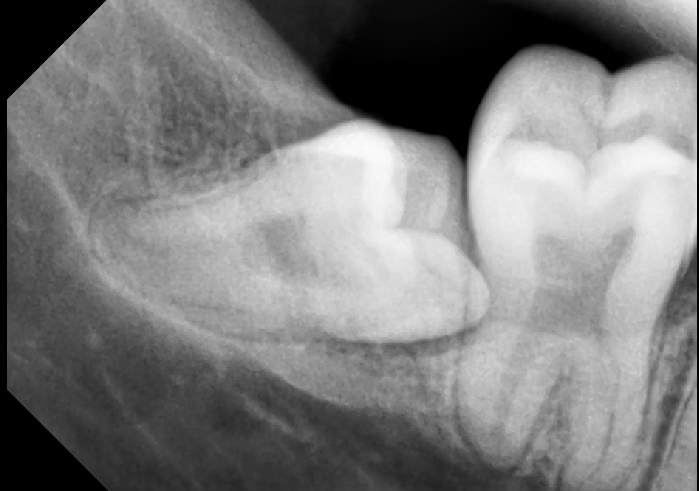
Wisdom tooth, commonly known as the third molar or akal jaad in hindi, is most commonly seen decayed tooth.
Unlike its name, it is not at all related to loss of wisdom. If the teeth are missing or have to be removed due to any reasons such as a cavity i.e. decay in the tooth or if the tooth is impacted i.e. stuck in the bone due to the small jaw size in most of the cases, there is no loss of wisdom at all. So, it is just a misnomer.
As the evolution is happening, the size of the human jaw is decreasing slowly. As these teeth are the last to erupt they do not get proper space to erupt. So, they end up either coming out in a direction where they do not help in chewing or are impacted i.e. remain inside the bone.
This leads to improper brushing in the region. There might also be a gap in between the second and the third molar where the food gets accumulated leading to cavity in both the teeth.
How to prevent your wisdom tooth from getting decayed?
1. Proper brushing: Proper brushing is the key. The head of the adult tooth brush that we use, is quite big. So, what we can do is use a kids toothbrush specifically in the region of third molars.
The upper third molars, most of the times erupt in such a way that there is just a little space between the tooth and the cheek region. So, in that case the adult toothbrush does not reach especially over the outer surface of the teeth and that leads to cavities. These cavities are not visible when you look in the mirror and therefore go unnoticed until the pain starts. I personally use a kids tooth brush to reach all the areas that are not accessible and so have prevented the decay in my wisdom teeth.
2. Regular dental visit: A visit to the dentist once every 6 months for a routine dental examination is a must. During this period the dentist will examine all your teeth and gums. In case your third molar has started developing a cavity, he or she will let you know and will help you get a filling done to stop the spread and prevent further pain or discomfort. They will also guide you in case your tooth is impacted and you need to get it removed as it might cause the adjacent tooth to get decayed.

3. Fluoride Treatments: If the water supply in your area has less or no fluoride, you can ask your dentist for fluoride application that will prevent the cavities to occur.
4.Healthy Eating Habits: One of the most important things to stay cavity free is to avoid unhealthy diet especially the sticky food, like chocolate, chips, biscuits and candies. Any thing that sticks to your teeth will attract the bacteria in that region and will lead to tooth decay. The best thing to do is snack only once a day and brush or rinse immediately after that. This will prevent the food to accumulate on the surface of the tooth.
What are the treatment options for a decayed wisdom Tooth?
There are mainly 3 treatment options depending on the severity of the decay with respect to the tooth.
1. Filling: When the decay has not reached the blood vessels and nerves of the tooth (Pulp), a simple filling is what is required to be done. This will prevent the cavity, i.e. the decay to further involve the tooth. These are of various types, and your dentist will decide after checking clinically, which one is the best for you.
2. Root Canal Treatment: The second option is a root canal treatment. When the decay has reached the pulp and you are having pain in the tooth, a root canal is the treatment of choice. It is a procedure of 30-45 minutes and in most of the cases a single sitting is required. Endodontists are the dentists who are trained in the root canal treatments.
3. Extraction: In case the tooth is almost decayed or is at a place where it will not help you in chewing food, your dentist might ask you to get it extracted. Extraction for wisdom tooth can be either a simple extraction or can be a surgical extraction depending upon the position of the tooth. Oral and Maxillofacial Surgeons are trained to do any kind of extraction. Surgical extractions are simple minor surgical procedures which again take maximum of 30-45 minutes of time until and unless the tooth is stuck and a little more time is needed.
For more information you can also visit www.32sparklets.com or book an appointment with Dr. Garima Verma (MDS Oral & Maxillofacial Surgeon) regarding your decayed wisdom tooth.
As it is said, “Prevention is better than cure.” Same is the case with a wisdom tooth. Prevent from getting the cavity and get a routine dental examination and it would be less painful and less expensive.



